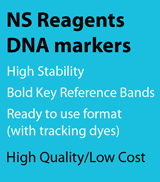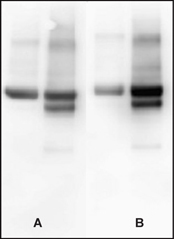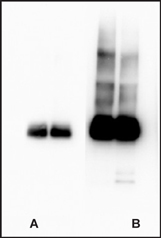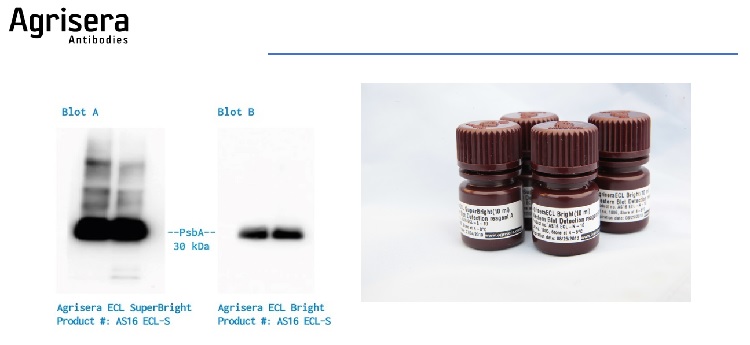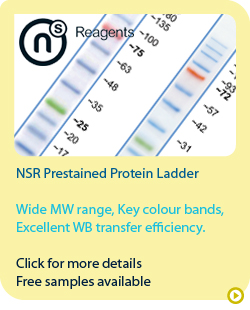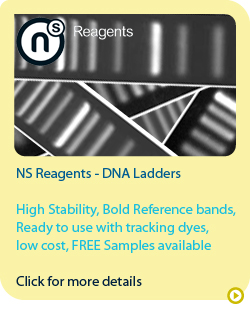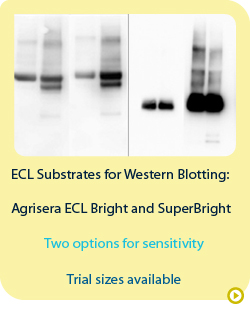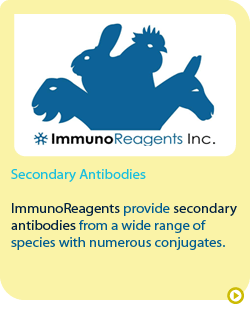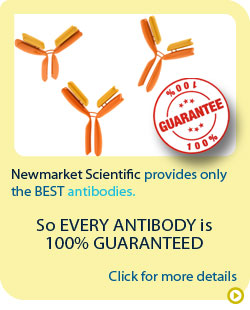Basic Reagents
PCR supermixes, secondary antibodies, DNA ladders and other commonly used reagents
|
Using a kit or reagent regularly? This can take up a lot of your reagents budget.
We understand that you dont want to use a lesser version, so try the Newmarket Scientific Basic Reagents range instead... excellent performance but a better price.
Our Basic Reagents range has DNA Ladders and protein ladders from our own NS Reagents brand, plus an impressive range of PCR and RT-PCR enzymes and master mixes and an equally impressive range of secondary antibodies.
Every product provides excellent performance at great pricing.
More information on each area is available below.
Newmarket Scientific - Great Products, Great Service, Guaranteed.
|
|
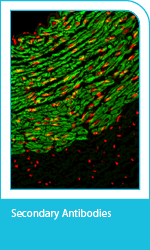
Secondary Antibodies
A secondary antibody is an antibody used to detect a first "primary" antibody that has been used to detect a target antigen. The sceondary antibody is commonly conjugated to an enzyme or fluorescent molecule to allow visualisation/localisation of the original antigen.
Our secondary antibodies cover many species:
All secondary antibodies are available with a range of enzyme and fluorescent conjugates and in quantities from milligrams to grams.
Follow the link above to see the full list of secondary antibodies or email us. |
||
|
|
||
|
ECL Reagents for Western Blotting from Agrisera
"Sensitive with almost no background"
Enhanced chemiluminescence (ECL) detection for western blotting is a technique routinely used by most laboratories for the detection of proteins. It is sensitive, fast and can detect very small protein amounts down to femtogram levels. Chemiluminescence western blotting is usually performed semi-quantitatively to confirm the presence or absence of the target of interest, but it is also suitable for quantitative analyses when the ECL substrates provide linear signals over a wide range of protein concentrations.
Different proteins may have varied expression levels, even if coming from the same sample. To meet specific experimental needs, Agrisera offers ECL reagents for western blotting with two different sensitivities, ECL Bright and ECL SuperBright. The Agrisera ECL reagents can be purchased either individually or as a unique pack containing both ECL substrates.
Agrisera’s enhanced chemiluminescent (ECL) reagents for Western blotting
AgriseraECL Bright (AS16 ECL-N) for high and medium abundancy proteins
AgriseraECL SuperBright (AS16 ECL-S) for low abundancy proteins of extremely low femtogram levels
AgriseraECL Kit (Bright and SuperBright in one pack) (AS16 ECL-SN) with Bright and SuperBright in one pack
Advantages of Agrisera’s ECL reagents
• High performance in western blotting applications • Two levels of sensitivity, Bright and SuperBright • A unique pack containing both ECL substrates for increased versatility when the protein expression levels are unknown or when detecting proteins with different expression levels. • Low background and superior signal to noise ratio • The blots can be stripped and reprobed with other antibodies and/or ECL substrates of different sensitivity.
Should you require any further information about these products or for a quotation, please contact tech@nktscientific.com
ECL substrates comparison
How do ECL reagents work in western blotting?
ECL reagents are chemiluminescent substrates for the horseradish peroxidase enzyme (HRP) and are commonly used with probes or secondary antibodies conjugated to HRP. They are two-component reagents constituted of a stable peroxide solution and an enhanced substrate solution such as luminol. When performing western blotting analysis, the HRP complex tethered to the secondary antibody catalyses the conversion of the ECL substrate with hydrogen peroxide. This produces an intermediary in an excited state which emits light when decaying to a lower energy state.
Example: Optimising western blots with different ECL sensitivities
In the example above, the aim was to detect a highly abundant photosynthetic protein, PsbA. Using Agrisera anti-PsbA antibodies (AS05 084), a matching secondary antibody of high titer, goat anti-rabbit, HRP-conjugated (AS09 602) and Agrisera ECL reagent of extreme low femtogram detection range (Agrisera ECLSuperBright), resulted in a prominently increased background signal (Blot A).
Increased background signals in western blotting are a common problem, which are generally not caused by the primary antibody itself, but very often rather due to a high load/well and the usage of a too sensitive ECL detection substrate.
Washing the initial blot (A) and redeveloping the membrane with the less sensitive ELC substrate, ECLBright, resulted in the optimised blot (Blot B) with a low background.
About Agrisera Dedicated to advancing plant science research, Agrisera offers an extensive list of antibodies suitable for the detection of plant and algal proteins in a wide range of research areas and applications. With over 30 years of experience working with plant antibodies, Agrisera is pleased to offer fast technical support as well as online western blotting workshops and educational posters.
Should you have any questions regarding the Agrisera range, for technical support or if you require a quotation, please contact tech@nktscientific.com.
|

